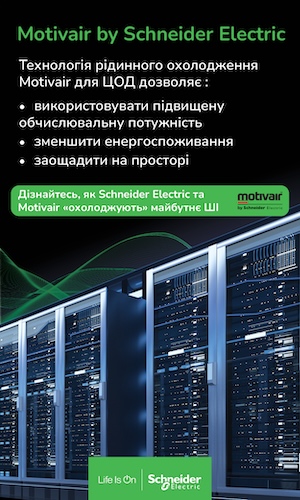| +1313 голосов |
|
Европейский суд запретил судам стран ЕС в судебном порядке заставлять провайдеров блокировать нелегальный обмен файлами
Всего через несколько месяцев после того, как British Telecom (BT) была вынуждена «забанить» Newzbin2 за распространение контента, нарушающего авторские права, Европейский суд (напомним, это высший суд Европейского союза, решения которого не могут быть обжалованы) постановил, что провайдеры доступа в Интернет не могут быть принуждены к блокированию пиратского контента по решению суда.
Таким образом, сторонники идеи повсеместного копирайта неожиданно столкнулись с огромной проблемой, хотя еще недавно они праздновали победу – благодаря появившемуся было прецеденту судебного решения по делу против Newzbin2. А праздник пришел на улицы приверженцев персональных свобод и технологических компаний, которых раздражала необходимость расплачиваться за политику звукозаписывающих и кинокомпаний.
Решение Европейского суда было сделано в рамках слушаний по делу, тянущемуся еще с 2004 г. В Бельгии местная ассоциация владельцев авторских прав, Société belge des auteurs, compositeurs et éditeurs (SABAM), пыталась обязать местного интернет-провайдера (Scarlet Extended SA), фильтровать весь трафик и блокировать нелегальный обмен и распространение файлов.
В решении ECJ говорится:
«Законодательство ЕС запрещает наложение национальным судом судебного решения, обязующего интернет-провайдера установить систему фильтрации с целью предотвращения нелегального скачивания файлов»
Стоит отметить, что в последнее время по всей Европе наблюдается тревожная тенденция принятия таких законодательных актов как Digital Economy Act (в Великобритании) или HADOPI (во Франции), в которых права копирайтерских монополий ставятся превыше интересов личности или общества. Решение же Европейского суда знаменует собой начало нового периода.
Дело Scarlet было более значимым, нежели блокирование DNS, к которому принудили BT для предупреждения доступа к NewzBin2, так как бельгийский провайдер должен был бы вести глубокий анализ всего трафика, что является грубым нарушением принципа неприкосновенности частной жизни. Как это решение ECJ повлияет на дело Newzbin2 или британский Digital Economy Act в целом пока не ясно, но, вероятно, мы узнаем об этом уже в ближайшее время.
Полный текст пресс-релиза от ECJ:
In its judgment delivered today, the Court points out, first of all, that holders of intellectual-property rights may apply for an injunction against intermediaries, such as internet service providers, whose services are being used by a third party to infringe their rights. The rules for the operation of injunctions are a matter for national law. However, those national rules must respect the limitations arising from European Union law, such as, in particular, the prohibition laid down in the E-Commerce Directive on electronic commerce under which national authorities must not adopt measures which would require an internet service provider to carry out general monitoring of the information that it transmits on its network.
In this regard, the Court finds that the injunction in question would require Scarlet to actively monitor all the data relating to each of its customers in order to prevent any infringement of intellectual-property rights. It follows that the injunction would impose general monitoring, something which is incompatible with the E-Commerce Directive. Moreover, such an injunction would not respect the applicable fundamental rights.
It is true that the protection of the right to intellectual property is enshrined in the Charter of Fundamental Rights of the EU. There is, however, nothing whatsoever in the wording of the Charter or in the Court’s case-law to suggest that that right is inviolable and must for that reason be absolutely protected.
In the present case, the injunction requiring the installation of a filtering system involves monitoring, in the interests of copyright holders, all electronic communications made through the network of the internet service provider concerned. That monitoring, moreover, is not limited in time. Such an injunction would thus result in a serious infringement of Scarlet’s freedom to conduct its business as it would require Scarlet to install a complicated, costly, permanent computer system at its own expense.
What is more, the effects of the injunction would not be limited to Scarlet, as the filtering system would also be liable to infringe the fundamental rights of its customers, namely their right to protection of their personal data and their right to receive or impart information, which are rights safeguarded by the Charter of Fundamental Rights of the EU. It is common ground, first, that the injunction would involve a systematic analysis of all content and the collection and identification of users’ IP addresses from which unlawful content on the network is sent. Those addresses are protected personal data. Secondly, the injunction could potentially undermine freedom of information since that system might not distinguish adequately between unlawful content and lawful content, with the result that its introduction could lead to the blocking of lawful communications.
Consequently, the Court finds that, in adopting the injunction requiring Scarlet to install such a filtering system, the national court would not be respecting the requirement that a fair balance be struck between the right to intellectual property, on the one hand, and the freedom to conduct business, the right to protection of personal data and the right to receive or impart information, on the other.
Accordingly, the Court’s reply is that EU law precludes an injunction made against an internet service provider requiring it to install a system for filtering all electronic communications passing via its services which applies indiscriminately to all its customers, as a preventive measure, exclusively at its expense, and for an unlimited period.
Стратегія охолодження ЦОД для епохи AI
| +1313 голосов |
|



